Gambling addiction is a serious issue for about 2.5 million adults in the U.S. Each person struggling due to their gambling has been shown to, on average, have a serious impact on six other people, typically those who are closest and most important to them. If you’ve got a friend or family member struggling with a gambling problem, you might be feeling pretty lost on how to help. Don’t worry – you’re exactly where you need to be. The Gambling Clinic® in Tennessee is here for both people with gambling problems and their families and friends. We’re all about educating people on how to support their loved ones through this tough time.
This blog will take you through understanding gambling addiction, talking to your loved one, giving them the support they need, and making sure you’re taking care of yourself along the way.
Understanding Gambling Addiction
What Is Gambling Addiction?
Gambling addiction, also known as gambling disorder or compulsive gambling, is when someone can’t stop gambling even though it’s causing problems in their life. This could mean losing money, damaging relationships, or neglecting responsibilities. It’s not just about having fun; it’s a compulsive behavior that can be really hard to break.
Signs and Symptoms of a Gambling Problem
Recognizing the signs early can help. Look out for:
- Preoccupied with thoughts about gambling or plans about what bets to place.
- Needing to bet more money to feel the same excitement
- Trying to cut back but failing
- Feeling irritable or restless when not gambling
- Gambling to escape problems or bad feelings
- Chasing losses, thinking they can win back what they lost
- Lying about gambling
- Risking or losing important relationships or jobs because of gambling
- Relying on others for money due to gambling losses
Why People Get Addicted
Several factors can lead to gambling problems and addiction. The path can be different for different people:
- Psychological: Traits like impulsivity and conditions like depression and anxiety can contribute. Coping with boredom, emotional stress, or trauma all contribute to a possible harmful engagement in some behavior, like gambling.
- Biological: Genetics and brain chemistry can play a role.
- Social: Early exposure, peer relations and pressure, and societal norms around gambling can influence behavior. Stressful life events and financial difficulties can also trigger gambling problems.
The Impact of Gambling Addiction on the Body
Gambling addiction wreaks havoc not only on mental health but also on the body. The constant stress and strain can lead to physical ailments.
Stress and Anxiety
Individuals grappling with a gambling problem often experience intense stress and anxiety. This stress can manifest through elevated heart rates, high blood pressure, and even heart attacks. The anxiety and constant worry about financial losses can lead to chronic conditions, such as ulcers and digestive issues.
Sleep Disruption
The cycle of gambling can severely disrupt sleep patterns. Many addicted gamblers find themselves staying up late, either participating in gambling activities or worrying about their losses. This lack of sleep can result in fatigue, irritability, and weakened immune function.
Substance Use
In an attempt to self-soothe, many turn to harmful substances like alcohol or drugs. This dual addiction can exacerbate physical problems, leading to liver damage, respiratory issues, or other long-term health complications.
Hormonal Imbalance
The highs and lows of gambling can result in irregular release of stress hormones such as cortisol. This hormonal imbalance can impact weight, energy levels, and overall health.
Weakened Immune System
The persistent stress and unhealthy lifestyle choices associated with gambling addiction can weaken the immune system, making the body more susceptible to infections and illnesses.
Conclusion
Gambling addiction doesn’t just impact the mind; it affects the body in profound ways. From stress-induced ailments to disrupted sleep and weakened immune systems, the physical repercussions can be severe and long-lasting.
What is the Treatment Process for Gambling Addiction?
Dealing with gambling addiction involves a comprehensive approach, focusing on both psychological and behavioral aspects. Here’s a breakdown of the typical treatment process:
1. Professional Consultation
The first step is to encourage the affected person to speak with a mental health professional. These experts can diagnose the addiction and develop a tailored treatment plan. It’s key that the individual feels supported in seeking help.
2. Therapy Options
Several effective therapeutic methods are available to treat gambling addiction:
- Motivational Interviewing: This approach is ideal if the individual is unsure about changing their habits. A counselor helps explore their ambivalence and discover personal motivations for recovery, making it easier to commit to the process.
- Cognitive Behavioral Therapy (CBT): CBT is widely used to address unhealthy thought patterns and behaviors linked to gambling. This therapy teaches practical skills to manage urges, cope with triggers, and solve problems resulting from gambling, such as strained relationships or work issues.
3. Addressing Co-occurring Disorders
Gambling addiction often exists alongside other mental health problems like depression, anxiety, or ADHD. Treating these underlying conditions is crucial because they can exacerbate the addiction.
- Medication: For those with co-occurring disorders, medications such as antidepressants and mood stabilizers may be prescribed. These drugs can help control both the urge to gamble and the symptoms of the accompanying mental health issues.
4. Support Systems
Building a solid support system is integral to recovery. Family and friends play a significant role in offering emotional support and encouraging the person to stick with their treatment plan.
5. Long-term Strategies
Recovery from gambling addiction is a long-term process. Regular therapy sessions, support groups, and continuous monitoring are essential to prevent relapse and maintain a healthy lifestyle.
Steps to Help Someone with a Gambling Problem
1. Educate Yourself
Before you talk to your loved one, learn about gambling addiction. Understand the symptoms, causes, and treatment options. This will help you speak knowledgeably and empathetically.
2. Take Care of Yourself
Supporting someone with a gambling problem can be draining. Make sure you’re taking care of your own mental and emotional health. This might mean talking to a therapist, joining a support group for families of addicts, or leaning on friends and loved ones for support.
Don’t Blame Yourself
Understand that you are not to blame for your loved one’s addiction. The person who gambles is the only one in control of their actions. Focus on caring for yourself while gently encouraging them to seek help. Support your loved one, but don’t take on their burden. Trying to control their gambling can strain your relationship and affect your mental health.
3. Plan Your Approach
Conversations about addiction can be tough. Here’s how to prepare:
- Pick the right time and place: Make sure you’re in a private setting so you both feel comfortable speaking openly and freely. Plan the conversation when both of you have plenty of time so you don’t feel rushed.
- Gather information: Have details about gambling addiction and resources ready.
- Stay calm and compassionate: Approach with empathy, not blame.
4. Communicate Effectively
Here are some tips for having a productive conversation:
- Use “I” statements: Say things like “I’m worried because I’ve noticed you’ve been gambling a lot lately” instead of accusing them.
- Listen actively: Don’t interrupt. Show you understand by reflecting back on what they say.
- Avoid judgmental language: Remember, gambling addiction is a mental health issue and should be approached with compassion.
5. Offer Support and Encouragement
Consistent encouragement can help your loved one stay motivated during their recovery journey. Make sure to:
- Be positive: Focus on their strengths and the progress they’ve made.
- Be supportive: Let them know you’re there for them, no matter what.
- Celebrate milestones: Whether it’s a week, a month, or a year without gambling, recognize these achievements.
6. Set Boundaries
Setting boundaries is crucial:
- Communicate expectations and consequences: Be clear about what behaviors are unacceptable to you and what will happen if they occur.
- Stick to your boundaries: Consistency is key.
- Seek support: Taking with others to gain perspective and find a partner to lean on helps. Being human means gaining support from others who you can trust and care for you often helps. Seek advice from a mental health professional or support group to help maintain these boundaries.
7. Protect Yourself Financially
Gambling addiction can lead to serious financial problems. Protect yourself by:
Separate Finances if Necessary to Prevent Access to Gambling Funds
- Open a separate bank account where your loved one doesn’t have access.
- Remove your loved one’s name from joint accounts if they have been misusing funds.
Have Discussions About Safeguards Such as Spending Limits, Joint Accounts, or Seeking Professional Financial Advice
- Implement daily or weekly spending limits on shared credit cards.
- Work with a financial advisor to create a budget and manage your finances to minimize risk.
Monitor Financial Accounts Regularly
- Check your bank statements weekly to spot any unusual transactions quickly.
- Set up alerts on your accounts to notify you of any large or unexpected transactions.
Set a Family Budget and Track Spending
- Establish a comprehensive family budget that outlines essential expenses and savings goals.
- Carefully monitor all family spending to ensure adherence to the budget and identify any potential misuse of funds.
Manage Family Finances Until Gambling is Under Control
- Take charge of managing all financial accounts and transactions until your partner’s gambling behavior is addressed and stabilized.
- Consider opening bank accounts that require dual signatures for withdrawals to add an extra layer of security.
Limit Cash Access
- Agree on a specific amount of cash your partner can have access to, reducing the temptation to gamble.
- Keep valuables and large sums of cash in a secure location, such as a safety deposit box, to prevent impulsive spending.
Get Legal Advice
- Seek legal advice to fully understand your rights and options within the relationship, especially regarding financial responsibilities and protections.
- Consider removing your name from shared credit cards and canceling overdrafts on joint bank accounts to further safeguard your finances.
8. Acknowledge and Celebrate Small Victories
Celebrating progress, no matter how small, is crucial in maintaining motivation and a positive outlook during the recovery process. Here are some ways to celebrate and reinforce positive behavior:
- Offer words of encouragement: Simple phrases like “I’m proud of you” or “You’re doing great” can mean a lot.
- Plan fun activities: Celebrate milestones by doing something enjoyable together, like going for a hike, having a nice dinner, or watching a favorite movie.
- Share their success: Let them know you’ve noticed their hard work and progress. This recognition can boost their confidence and encourage them to keep going.
9. Plan Fun Activities
Enjoying fun and rewarding activities can help distract from gambling urges and provide a positive outlet for stress. Here are some ideas:
- Get outdoors: Hiking, biking, or simply taking a walk in nature can be refreshing and stress-relieving.
- Pick up a hobby: Encourage them to try a new hobby or revisit an old one, such as painting, playing a musical instrument, or gardening.
- Get social: Plan get-togethers with friends and family who are supportive and understanding.
Approaching Different Relationships
Talking to a loved one about their gambling problem can be hard. Here are some tips on how to approach these conversations:
A Family Member
It may be helpful to discuss the importance of family support and express concern about the impact of gambling on them and the family.
A Spouse
Approach the conversation with empathy and without judgment. Communicate openly about how gambling is negatively affecting relationships. They may want to work collaboratively to find a mental health professional or seek therapy separately.
A Friend
Approach the conversation from a place of care and concern for their well-being while emphasizing the value of friendship. Discuss ways in which gambling may be affecting interpersonal relationships.
Listening with Compassion
Listening with compassion is one of the best ways to support someone with a gambling problem. Here’s how:
- Avoid stigmatizing or blaming: Focus on understanding their perspective without judgment.
- Offer emotional support and encouragement: Let them know you believe in their ability to recover.
- Practice active listening: Show that you’re fully present by making eye contact, nodding, and providing verbal affirmations.
- Reflect and validate: Reflect back what they say to show you understand and validate their feelings and experiences.
- Avoid interrupting: You may not agree, but listening is an important part of offering support.
Support in Tennessee: The Gambling Clinic®
Helping someone with a gambling addiction can be hard, and you may feel lost and uncertain. Do realize that our support can really mean a lot as someone works towards recovering or gaining control and repairing relationships and financial well-being. It’s important to learn about what they’re going through, listen with empathy, and be there for them consistently.
But remember, it’s okay to take care of yourself too and set boundaries if needed. Recovery takes time and effort, but with patience, understanding, and the right help, you and your loved one can make progress together.
If you’re in Tennessee and seeking support, The Gambling Clinic® is here to help. With locations in Nashville, Memphis, and Johnson City, as well as telehealth services across the state, our team is ready to provide the resources and guidance you need for lasting recovery. Contact us today to learn how we can assist you and your family on this path to healing.
Frequently Asked Questions
Is it possible for someone to help a person with a gambling addiction?
Supporting someone dealing with gambling issues is totally possible, but it takes patience, empathy, and understanding. Gambling problems usually come from a mix of stuff going on inside and outside, which can lead to some pretty tough situations. While getting help from professionals is often needed, family and friends can be a huge source of emotional support and encouragement along the way.
You can help your loved one find a treatment specifically designed and tested to work for those who have experienced harm due to their gambling. The Gambling Clinic® (TGC®) is all about giving specialized help to people with gambling problems, and they’re there for their loved ones too. Other support may include Gamblers Anonymous (GA), which provides a supportive community of people who are also experiencing a gambling problem.
Why should someone take care of themselves before they help their loved one with a gambling addiction?
Taking care of yourself is super important when you’re helping out someone dealing with gambling issues. It’s tough seeing someone you care about struggle, and it can really mess with your own feelings – potentially causing stress, anxiety, or even depression. Looking after yourself and talking to a professional can make you better at supporting your loved one through their gambling problems.
When you’re ready to talk to them about it, remember it’s a big step towards change. But make sure you’re in the right headspace yourself before you begin the conversation.
How can someone approach a conversation with a loved one who has a gambling problem?
Before diving into a conversation about a loved one’s gambling issues, it’s crucial to get yourself emotionally and mentally ready. These talks require patience because change takes time. When you’re ready to chat, make sure it’s all about listening without throwing around any blame or judgment. Remember, gambling problems are serious mental health issues and need to be treated with care and understanding.
Approaching the conversation might feel daunting, but you can start by showing you care and being empathetic. Keep the conversation focused on feelings and experiences without getting into arguments or pointing fingers. Use “I” statements to express how you feel and what you’ve noticed.
Be sure to offer your support and gently suggest seeking help. And don’t forget to do your homework and find out what resources are out there to support your loved one through this tough time.
Setting Boundaries with an Addicted Loved One
Clearly Communicate Expectations and Consequences
- State that lending money will stop if gambling continues.
- Make it clear that financial support is only available if they regularly attend counseling sessions.
Stay Firm in Your Boundaries
- If you’ve said you won’t provide money if they gamble, stick to this, even if it’s difficult.
- Follow through with consequences if they lie about their gambling, such as limiting the contact they have with you until they seek help.
Seek Support from a Mental Health Professional or Support Group
- Join a support group for the families of people with gambling addictions.
- See a therapist who specializes in addiction to help manage your emotions and reinforce your boundaries.
Practice Self-Care
- Set aside time each week for activities you enjoy, like reading, gardening, or exercising.
- Take regular breaks to unwind, such as going for a walk or practicing meditation.
Ways to Protect Yourself Financially
Separate Finances if Necessary to Prevent Access to Gambling Funds
- Open a separate bank account where your loved one doesn’t have access.
- Remove your loved one’s name from joint accounts if they have been misusing funds.
Have Discussions About Safeguards such as Spending Limits, Joint Accounts, or Seeking Professional Financial Advice
- Implement daily or weekly spending limits on shared credit cards.
- Work with a financial advisor to create a budget and manage your finances to minimize risk.
Monitor Financial Accounts Regularly
- Check your bank statements weekly to spot any unusual transactions quickly.
- Set up alerts on your accounts to notify you of any large or unexpected transactions.
Celebrating Progress in Healing
Acknowledge and Celebrate Even Small Victories
- Express pride in their strength for not gambling over a specific period.
- Celebrate milestones, like one-month free of gambling, with a special dinner or outing.
Offer Words of Encouragement and Support
- Let them know they’re doing a great job and to keep it up.
- Reinforce your belief in their ability to overcome this challenge.
Plan Enjoyable Activities Together to Celebrate Milestones
- Plan a weekend getaway to mark a significant milestone in their recovery.
- Organize a small gathering with close friends and family to recognize their progress.
Express Pride in Their Efforts to Overcome Addiction
- Acknowledge their hard work and commitment to recovery.
- Write a heartfelt letter expressing your pride and support for their continued efforts.
By setting clear boundaries and practicing self-care, you can better support your loved one while protecting your own well-being. Celebrating their progress, no matter how small can help keep them motivated and positive throughout their recovery journey.
Should someone with a gambling addiction find a support group?
Support groups are safe spaces where people can open up about their struggles without fear of judgment. They’re all about sharing experiences, learning from each other, and getting cheered on by others going through similar gambling issues. A group like Gamblers Anonymous (GA) can give you a sense of belonging and that extra boost you need to get back on track.
If you’re in Tennessee and need specialized treatment, reach out to our team at The Gambling Clinic® (TGC®) to begin your path to recovery. With locations in Nashville, Memphis, and Johnson City, we’re here to support you in person. We also provide telehealth services to assist anyone across Tennessee. Let us help you every step of the way.







